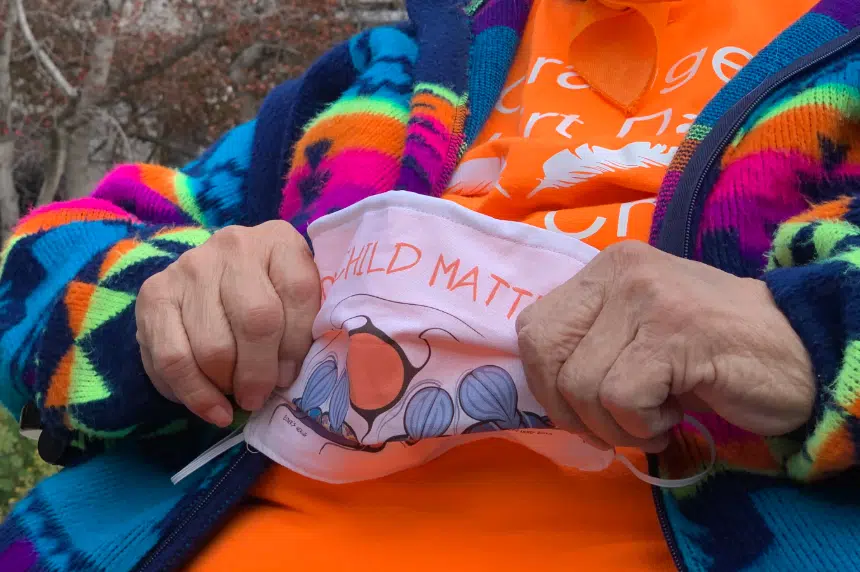Acknowledging the Indian Residential Schools, honouring survivors, the families and those who did not make it home.
That’s the goal behind Wednesday’s annual Orange Shirt Day, a celebration shared with the rest of the country. On Tuesday, the City of Saskatoon launched its ‘Orange Shirt Day ConnectR Reconciliation Challenge.’
It’s a commitment to start or continue the journey of reconciliation by using online resources, which can be accessed here.
Along with the announcement, two knowledge keepers in Eugene Arcand and Maria Linklater shared their experiences within the Residential School system.
Linklater shared her recollection of one instance, involving a young boy who she used to take care of.
“I remember one day he disappeared. Next thing I knew, a little plane was landing at that little lake and they took him away. And then he came back, in a coffin,” she explained. “They told us that we couldn’t see him, because the coffin was closed. During the night, I went over there (and) I opened the coffin and (he) was all beaten up, his face was blue.”
She explained that the little boy was just one of the children who were beaten to death, and never made it home.
“Just think about it, if that happened to your grandchildren, and you wouldn’t even know about it. We are never going to go away,” she said.
“Some people tell us, ‘get over it,’ I’d like to see them get over it if they had their children murdered, and beaten and thrown out.”
Arcand, holding a publication of all the names of the children who didn’t make it home following the Residential School system, explained some of the importance behind never forgetting what happened in the school setting.
“It’s very, very important for us to share our knowledge and our experiences with the young people because that’s where the change is going to happen,” he explained. “This window has never presented itself in the history of this country, where we can talk about racism. Where we can talk about reconciliation, where we can tell the truth of Saskatchewan’s true history.”
He said it’s imperative that children grow up in a society where they can co-exist, rather than a segregated society that remains today.
“We want to change that, we want to be part of the solution,” he said. “Young people will absorb that information, they’ll make change.”
Saskatoon residents can also join the ConnectR Challenge Facebook Group to share experiences and access guidance and support with reconciliation.











